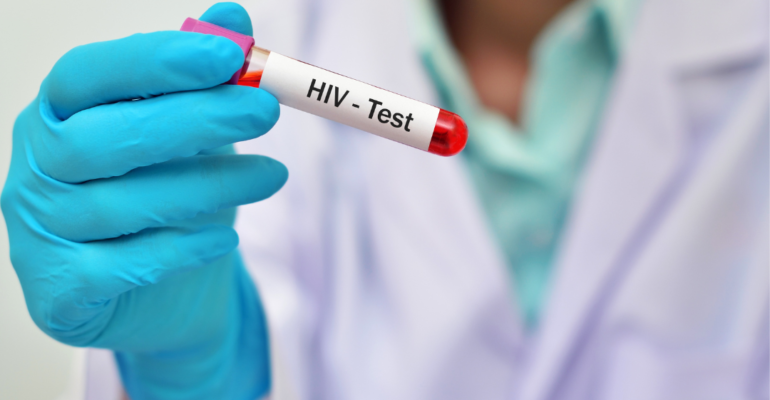WHAT IS HUMAN IMMUNODEFICIENCY VIRUS (HIV)?
HIV is a virus that attacks the immune system; gradually breaking down the body’s defences against diseases. Long-term, untreated HIV infection leads to acquired immunodeficiency syndrome (AIDS); causing an extreme weakness against diseases, as the immune system weakens.
The virus is transmitted via unprotected sexual intercourse, intravenous drug use or breastfeeding from a person who is not being treated for the virus. If treated with medication that prevents further HIV development (retroviral medication), patients are unlikely to transmit the virus to others, nor are they likely to develop AIDS.
Article 25 of the Universal Declaration of Human Rights states that ‘Everyone has the right to a standard of living adequate for the health and well-being of himself and of his family, including medical care, and the right to security in the event of sickness’. This protects those who have been infected with HIV (by entitlement to healthcare) and adequate security if severely ill. Additionally, employers cannot discriminate against employees based on their HIV status, and employees should have the right whether they disclose their HIV status to their employer.
WHAT IS THE SITUATION WITH HIV IN SOUTH AFRICA?
South Africa has one of the highest HIV infection rates in the world. According to UNAIDS, approximately 7.7 million people were HIV-positive and living in South Africa in 2018.
An important case in ensuring the rights of HIV-positive people in South Africa was ‘Hoffmann vs South African Airways’. Hoffmann argued that he had been discriminated against by his employer, South African Airways, due to his HIV status. The court decided that discrimination on this basis would constitute an infringement of dignity, as it was discrimination based on a person’s medical health. Hoffmann’s case of discrimination as a result of his HIV status was therefore held to be analogous to the grounds of unfair discrimination listed in the South African Constitution. Thus, Hoffmann won the case and affirmed HIV-positive rights in the constitutional law of South Africa.
As stated on the government website for South Africa, the South African Constitution and its bill of rights protect all people, regardless of HIV status.
DO PEOPLE IN SOUTH AFRICA STILL FACE DISCRIMINATION BASED ON THEIR HIV STATUS?
A psychological study was conducted into the mental impact of HIV status on the well-being of South Africans in two Tshwane communities. Internalised stigma towards the virus was commonly found in the community of people living with HIV. Stigma was also found to be perpetuated by HIV-negative, older men who were less educated. The psychological study found that 78% of those asked had faced negative discrimination based on their HIV status, typically in the form of gossip and distancing from HIV-positive individuals. More overt forms of discrimination such as medical negligence and abuse were reported by a smaller, yet still significant, proportion of the community.
Consequently, HIV stigma is still prevalent in South Africa despite the progress made in the past 30 years to protect all people under South African constitutional law. We know that stigma is largely due to a lack of education on the virus and the benefits of retroviral medication. Communities in South Africa would benefit from more extensive education on what HIV is, with the assurance that HIV positivity doesn’t always mean AIDS. More severe forms of discrimination do not uphold South African constitutional law and should be treated seriously to ensure that all services in South Africa are consistent with it.

